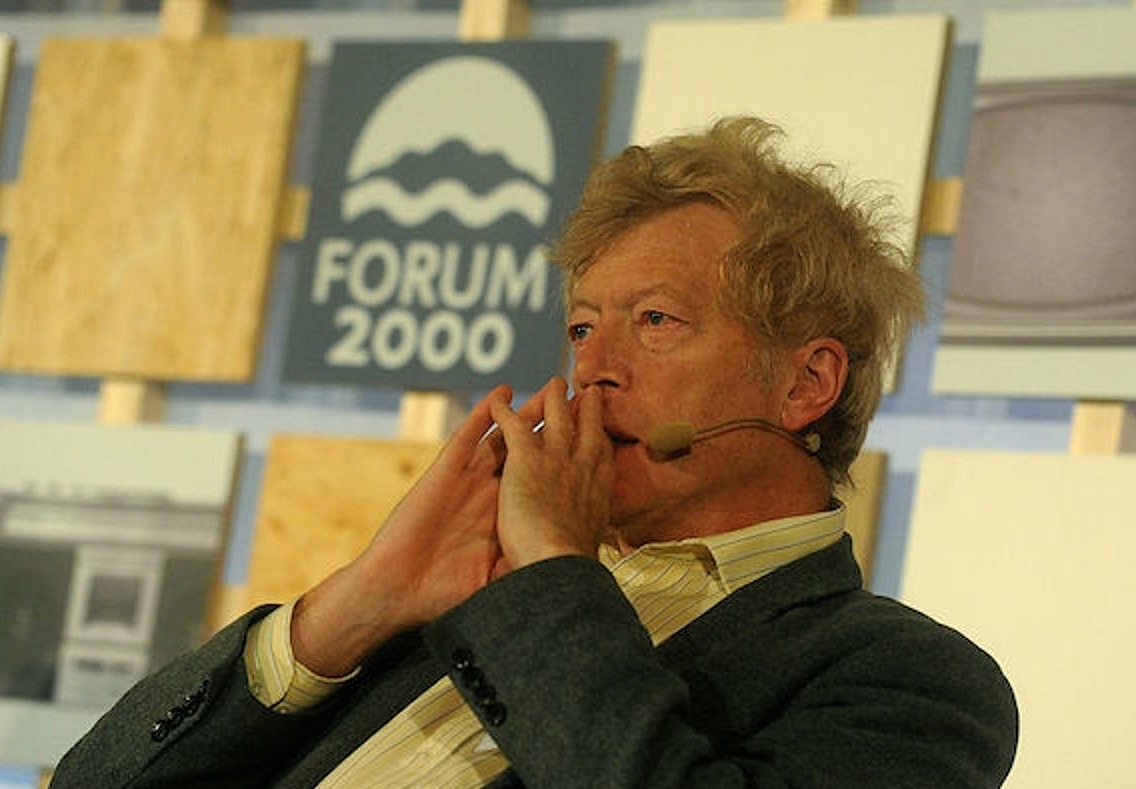World
Roger Scruton: A Knighthood For Conservatism
- Roger Scruton almost singlehandedly helped Conservatism gain legitimacy as mainstream philosophy
- Much of his philosophical ideas can serve to defend any form of traditional Conservatism

Getty Images
“Nothing upset me more than the award of Companion of Honour to Eric Hobsbawm in reward for a lifetime of unswerving loyalty to the Soviet Union” rued Roger Scruton, about the time in England “when honours and praise go only to people on the Left.” 20 years later, Scruton has been knighted on the Queen’s 90th birthday “for (his) significant impact on thinking about national identity, freedom and Western values.”
It is quite easy to understate this achievement if one is not aware of the position of conservative thought in post-world war Western philosophy. The emergence of Marx, Nietzsche and Heidegger as the guiding lights of philosophy to the exclusion of the Enlightenment era philosophers, relegated any thought of religion or custom to the intellectual dustbin.
This trend fortified with the rise of the “soixante-huitard philosopher”, whose ideas could have no practical effect except dehumanisation of the individual. All that the conservative could do, even when his ideology gained influence, such as during Margaret Thatcher’s rise, was to mock philosophy as a wasteful discipline or attack the major philosophers of the day for their personal follies. (See, for example Paul Jhonson’s Intellectuals: From Marx and Tolstoy to Sartre and Chomsky).
Through his work, Scruton almost singlehandedly helped Conservatism gain legitimacy as mainstream philosophy. He was not inventing a new philosophy but was only drawing heavily from earlier thinkers like Burke, Kant and Hegel- who were all but forgotten in Europe’s left-dominated academia. Anyone who reads Scruton would instantly realise this.
Scruton’s ideas are an intellectual solace to millions of individuals around the world, who have been struggling to reconcile their instinctive love for things inherited in society with the philosophical consensus against everything that came to exist through millennia of human interaction. His defence of concepts, that were hitherto close to cuss words in Western philosophy like nationalism, family, beauty, tradition, inequality, etc. is so appealing that one wonders why it took so long for anyone to articulate the obvious.
The manner in which philosophy was taught and studied in Europe was such. The Left still had such a stranglehold over the academia that Scruton’s success is almost a miracle achieved, against tremendous odds. What he had to face, in his own words, is “a relentless campaign of intimidation (by which) left-wing thinkers…sought to make it unacceptable to be on the Right.” (pg273,Fools, Frauds and Firebrands: Thinkers of the New Left). The knighthood is, therefore, not just a recognition of Scruton’s intellectual capabilities but also his courage.
Every stage of Scruton’s career appears to have been a struggle. In an article, in The Spectator, he explains how difficult it was for him to run an expressly Conservative journal. He says the editorship “had cost me many thousand hours of unpaid labour, a hideous character assassination…three lawsuits, two interrogations, one expulsion, the loss of a university career in Britain, unendingly contemptuous reviews, Tory suspicion, and the hatred of decent liberals everywhere.”
His involvement in underground intellectual movements in Communist countries is, by far, the most remarkable symbol of his commitment to the Conservative cause. His narration of a visit to Prague in 1979, to give a talk to a group of dissident-intellectuals is scintillating:
Many such “dissidents” who studied Scruton became influential figures in the first democratic governments that formed in Eastern Europe, after the fall of Communism. Scruton, therefore, is a public intellectual in the true sense of the term.
Honouring Scruton just days before the crucial Brexit vote is a noteworthy coincidence. Scruton has been providing immense intellectual support to the movement demanding Britain’s exit from the EU. In his memoirs “Gentle Regrets”, and elsewhere, Scruton idealises the nationalism of Charles De Gaulle, who blocked Britain’s entry into the EU twice before it finally joined in 1973. Far from being parochial, according to Scruton, it is this conservation of inherited values through a national identity that allows for their protection from unmanageable human tendencies.
While Scruton is categorical in identifying Christianity as one of these values in the British context, much of his philosophical ideas can serve to defend any form of traditional Conservatism, especially against continuing dominance of leftist-intellectualism.
Introducing ElectionsHQ + 50 Ground Reports Project
The 2024 elections might seem easy to guess, but there are some important questions that shouldn't be missed.
Do freebies still sway voters? Do people prioritise infrastructure when voting? How will Punjab vote?
The answers to these questions provide great insights into where we, as a country, are headed in the years to come.
Swarajya is starting a project with an aim to do 50 solid ground stories and a smart commentary service on WhatsApp, a one-of-a-kind. We'd love your support during this election season.
Click below to contribute.
Latest